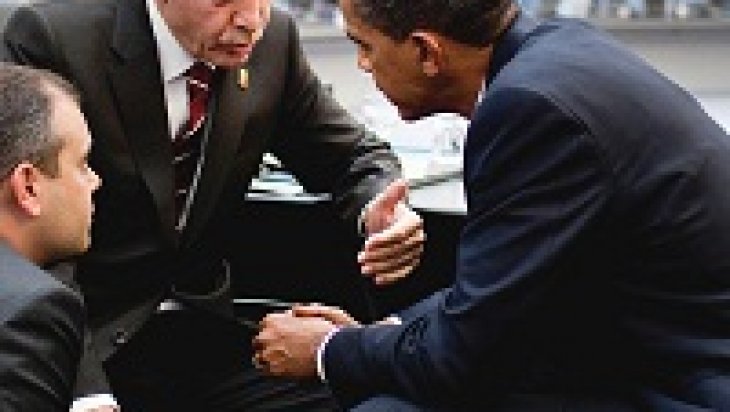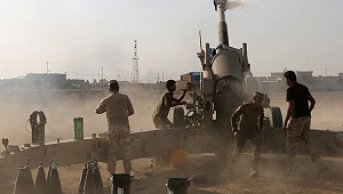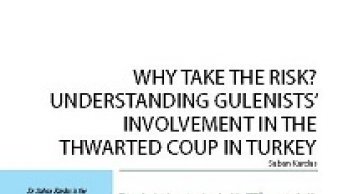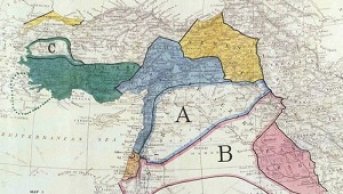Between a Hard Place and the United States: Turkey’s Syria Policy Ahead of the Geneva Talks

Dilemmas: Principled Position vs. Political Reality
Turkey has suffered greatly from the international community’s inability to end the Syrian crisis. As diplomatic efforts have ended in failure, Turkey has watched the conflict grow into the greatest challenge it has confronted in the post-Cold War era. It has incurred enormous costs in hosting more than 2.5 million Syrian refugees, while its economic ties with the region have been hampered. Its national security has been threatened by the deepening conflict; spill-over effects of violence originating in Syria have taken a heavy toll in the form of attacks by the self-proclaimed Islamic State of Iraq and Syria (ISIS) and the Kurdistan Workers’ Party (PKK). Turkey also faces the risk of a direct confrontation with Russia due to the Syrian crisis, which may mark a sea change in post-Cold War Turkish foreign policy, not to mention creating deep disagreements with its traditional Western allies.
Turkey has an immense interest in a political settlement that will pacify the conflict in Syria. It will likely benefit from any peace dividend, as the costs of continuation of the conflict are accumulating at a growing rate. Despite the strategic urgency it feels for peace, however, Turkey has not given in to the pressure exerted by the fast-changing conditions on the ground. Far from accepting any political deal, Turkey still insists that for the political process to be acceptable, it must have certain qualities that reflect its principles and interests.
For Turkey, the decisive question is whether the military conditions behind a negotiation framework can sustain a political process. While the concept behind the current process, crystallized in the Vienna Declaration and UNSC Resolution 2254, was based on a particular balance of power on the ground, Russian and Iranian intervention is altering it. If the diplomatic process is to have a chance, from the Turkish point of view, it has to proceed with the original understanding, and a new round of Geneva talks need to be geared toward a transition process envisaged in Geneva-I.
This insistence on a political transition has burdened Turkey’s policy. Although it is criticized for such principled inflexibility, Turkey sees a sustainable political deal to which all major actors on the ground can subscribe as essential so they can then channel their energies to fighting ISIS. In line with the Vienna meeting conclusions, the Syrian opposition gathered in Riyadh in early December 2015 to discuss terms for their participation into upcoming planned political negotiations. As the final declaration underscored, opposition groups will not accept an imposed solution if it lacks a realistic transition framework. Still, the main parameters according to which the opposition will negotiate with the regime continue to be the decisive factor as the opposition weighs whether or not to participate in the Geneva talks. For its part, despite the many shortcomings of the various diplomatic initiatives, Turkey has done everything to convince the Syrian opposition to take part in the political process. This was the case in Geneva II (2014) and Geneva III (2015), and Turkey still insists that the opposition should come to the table. Nonetheless, if the Geneva-I framework is not accepted as the baseline, Turkey fears that future negotiations will not bear fruit.
Turkey’s heightened security concerns have emerged as another element shaping its position on the Geneva talks. The suppression of other Kurdish political groups by the PYD, which Turkey considers an offshoot of the PKK, and the PYD’s skillful utilization of its role in the fight against ISIS to build alliances with major powers has presented Turkey with many challenges. Initially, Ankara sought to develop a working relationship with the PYD, even inviting its co-chair, Salih Muslim, to Turkey for a discussion about the developments in northern Syria after the PYD emerged as a sizable force in the summer of 2012. The PYD’s refusal to work with the mainstream Syrian opposition, represented by Syrian National Coalition, the convergence of positions with the Syrian regime, Russia, and Iran, and the PKK’s ending of the peace process in Turkey last summer have all poisoned any chances for a cooperative relationship. The growing signs that the PYD is pursuing expansionist goals at the expense of other groups have fostered a hostile relationship with not only with Turkey but also with other opposition groups. Consequently, Turkey continues to advocate for the opposition’s argument that the PYD cannot be included at the negotiation table on the opposition delegation. If it were to be given a seat, they say, it should be on the regime’s side. PYD representation in any talks will remain thorny issue and a potential deal-breaker, especially if Russia wants to torpedo the entire process.
U.S.-Turkey Divergence on Syria
The realization of Turkey’s objectives regarding Syria has been predicated on its leveraging of U.S. policy in line with its priorities. Having fallen short of this vital component, Ankara has found itself in its current impasse. As the visit of U.S. Vice President Joe Biden underscored once again, such a convergence of priorities is unlikely to emerge, and disagreements will shape the parameters of U.S.-Turkish dynamics in the next phases of the crisis when attention turns to diplomatic efforts.
Turkey finds it hard to align with U.S. policy, which has been increasingly overtaken by the course of events. Washington has moved away from its comprehensive approach, which presumed the resolution of the Syrian crisis, so fighting the ISIS threat will come through supporting moderate opposition groups and facilitating the political transition in line with the Geneva-I principles. The United States has gradually reduced the Syrian crisis to one of counter-terrorism and grown content with even a modest diplomatic process.
The widening gap between the fundamental principles that shaped the U.S. policy and the current position of the U.S. administration on the future of the Syrian crisis has strained the Turkish-U.S. alliance. As it feels the heat from a deepening civil war next door, which is exacerbated by the intervention of Russia and Iran, Ankara has been troubled by Washington’s unwillingness to recognize its vital security interests in Syria and weigh in accordingly.
On the military front, disappointment with Washington had been growing over time. The ill-fated trajectory of the train and equip program underscores how current U.S. policy has been unable to back the words with deeds, and has lost the ability to affect the developments on the ground. For its part, Ankara suffered from this half-hearted policy as it has failed to realize its preferred policy of a safe zone in northern Syria and curtailing direct support to the PYD.
On the diplomatic front, too, disappointment with U.S. policy is growing fast. The current policy appears to present any movement as success, such that it is perceived as ready to succumb to the Russian attempts to dictate their own distorted reading of the Vienna process and detach it from the Geneva-I framework. Russian intervention has been a game changer in a negative direction for Ankara, while Washington, in a sort of Pollyannaish optimism, has come to rely on Russia as the only positive force that can bring about a political solution of any sort.
Compared to those at the start of the Russian intervention in late September 2015, however, current conditions are hardly more conducive to a genuine political process. The developments leading to the formation of the International Syria Support Group bringing together major external stakeholders and the resulting Vienna consensus produced a rare international understanding behind the political process. Russia’s unchecked military intervention, however, is fast eroding that common ground.
Russia has increased its military presence on the ground, which far outweighs the requirements of fighting ISIS, and now is using it to change the military balance. Despite the Vienna consensus, and UN Security Council Resolution 2254 endorsing the Vienna and Riyadh conclusions, the Russian and Iranian-backed offensive has empowered Assad’s rule, such that his regime may now be less willing to accept the political transition paradigm in line with Geneva-I. Similarly, there has been little progress toward delivering some confidence-building measures, such as lifting the siege and starvation tactics, facilitating humanitarian access, and ending indiscriminate bombardment of civilian areas, which undermines the opposition’s incentives to remain committed to the political process.
Faced with this picture, one in which Washington shies away from flexing its diplomatic muscle, the prospects for a sustainable political process are dim. Ankara thinks that Washington is increasingly unwilling to confront Moscow’s reckless behavior and its attempts to alter the conditions on the ground to impose its own version of a solution because the Obama administration lacks the determination to implement its own policy and hopes to see the only game in town succeed. Irrespective of how the political process will unfold, the Syria crisis will leave a bitter taste for Turkish-U.S. relations. Their bonds of mutual trust and credibility have been badly affected.
The original of this article was published on the website of the German Marshall Fund of The United States (GMF)










